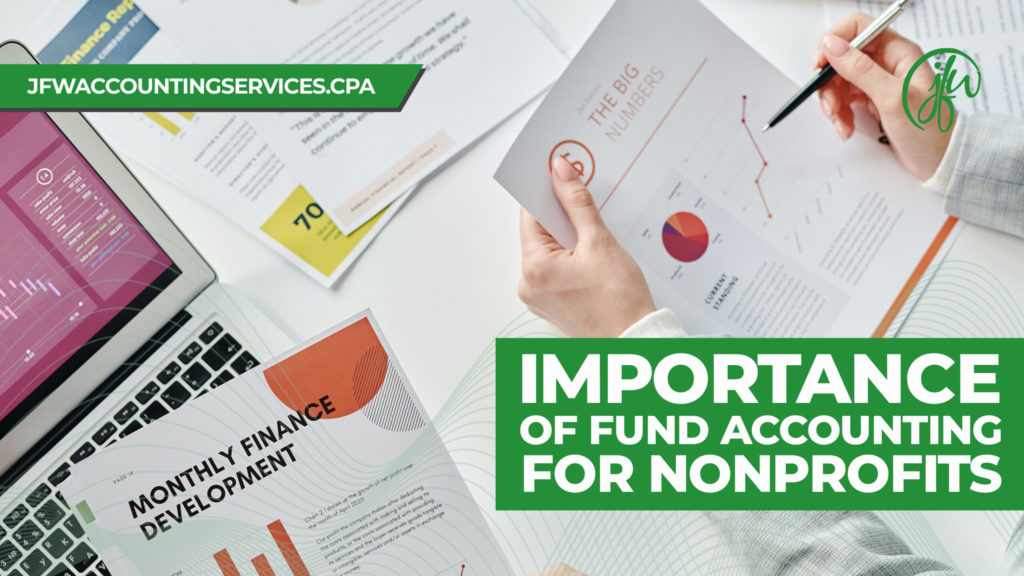Nonprofit organizations are different from for-profit entities in many ways. One significant difference is that they don’t have shareholders. For-profit entities focus financial planning energy on generating income that exceeds expenses so that there is a profit earned for shareholders.
Nonprofits focus on generating income for the purpose of funding their mission and serving the members of their organization or the community. Because they are different, nonprofit organizations must account for their financial transactions differently. Continue reading to learn more about how nonprofits report transactions using fund accounting.
What is Fund Accounting?
Fund accounting is the method used to record financial transactions that focus on accountability rather than profitability. Accounting for any business looks at how much revenue was earned, how much of that was spent on expenses, and what is leftover. However, with fund accounting, there is much more detail and attention given to how revenue is allocated. Not all revenue is generated with the same intentions for use.
Fund accounting allows a nonprofit organization to keep accurate financial records that can help in the decision-making process and satisfy interested parties, like donors and government agencies.
Types of Fund Categories for Nonprofit Organizations
Revenue that is received by a nonprofit is put into different categories when using fund accounting. Since many donations and grants come with specified instructions on how the funds can be used, fund accounting accurately separates the income into the correct fund category. Nonprofits will often collect funds that fall into the following categories.
Unrestricted funds
Unrestricted funds are the most flexible revenue that a nonprofit collects. They come from grants, investors, operations, and donations where the use of the money has not been specified. Nonprofits can turn to the Federal Accounting Standards Board (FASB) for guidelines on appropriate uses of these funds, which simply requires that the funds are being used for the good of the nonprofit.
Current restricted
Current restricted funds are revenue received by the organization with restrictions on how they can be spent. Funds are restricted because they are received with documentation specifying their use or because of an agreement between the organization and the donor or granting agency. When the restricted funds are designated “current” there is usually a timeline associated with the use of the funds.
Examples may include funds given for a project like building a center or graduation grants for students in need. The funds stop or expire at some point.
Restricted endowment
Restricted endowment funds are also received with specific intentions for their use, but without the timeline accompanying current restricted funds. Permanently restricted funds go into an endowment and never expire. Each endowment is set up to support either a specific activity of the organization. Restricted endowment funds must be accounted for over time as they are used, received, or invested.
Charities and nonprofits often invest this type of gift for the purpose of generating interest income.
Designated
The use of designated funds is usually determined internally, by board members or the organization’s leadership. However, some funds received from donors can also be classified as designated. The determining factor lays in the documentation or agreement in place when receiving the funds. The designated status can be changed over time if the governing board or donor determines it benefits the mission of the organization.
These funds can come from donors or from revenue collected through fees, services, and sales.
Fixed assets
Some funds earned or received by a nonprofit are designated for fixed asset use. A fixed asset is an item purchased by the organization that they will benefit from for a period greater than one year. Fixed assets can be land, buildings, furniture, computer software, vehicles, or any other asset whose value will be recorded on financial statements for the length of its useful life.
Why Do We Need Fund Accounting?
Fund accounting is a very complex, but detailed, method of accounting. It is the most efficient way for a nonprofit to keep track of its financial position because the income generated by nonprofit organizations is different from that earned by a for-profit company.
Agencies that govern tax-exempt status, like the IRS, and nonprofit designations, like those granted by the state, often require financial reports that can only be generated using fund accounting. It allows both external and internal users to clearly follow the money that has come into and out of the organization.
How Can JFW Accounting Services Meet Your Needs
JFW Accounting Services specializes in working with nonprofit organizations. When seeking help with fund accounting, it is vital to find accountants that are familiar, not to mention experts, with the detailed regulations behind restricted and unrestricted funds. Contact us today to learn how JFW Accounting Services can get your organization on the right track with fund accounting.

Jo-Anne Williams Barnes, is a Certified Public Accountant (CPA) and Chartered Global Management Accountant (CGMA) holding a Master’s of Science in Accounting (MSA) and a Master’s in Business Administration (MBA). Additionally, she holds a Bachelor of Science (BS) in Accounting from the University of Baltimore and is a seasoned accounting professional with several years of experience in the field of managing financial records for non-profits, small, medium, and large businesses. Jo-Anne is a certified Sage Intacct Accounting and Implementation Specialist, a certified QuickBooks ProAdvisor, an AICPA Not-for-Profit Certificate II holder, and Standard for Excellence Licensed Consultant. Additionally, Jo-Anne is a member of American Institute of Certified Public Accountant (AICPA), Maryland Association of Certified Public Accountants (MACPA), and Greater Washington Society of Certified Public Accountants (GWSCPA) where she continues to keep abreast on the latest industry trends and changes.

